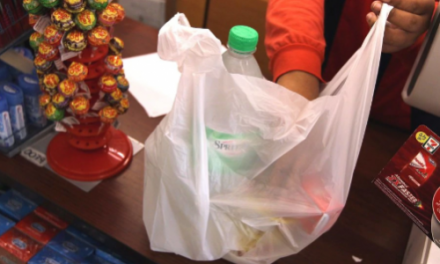Property market confidence returning by 2022
Residential properties are expected to remain subdued this year until the health crisis is brought under control, according to Knight Frank Malaysia’s first half real estate highlights. Managing director Sarkunan Subramaniam said the residential market would continue to self-correct amid challenges brought on by the Covid-19 pandemic. Interestingly, according to Sarkunan, there appears to be pent-up demand in the housing market which is evident by the short burst of recovery in market activity when movement restrictions were temporarily lifted. Knight Frank deputy managing director Keith Ooi reckoned that the high-end condominium market in Kuala Lumpur would continue to undergo price correction due to weaker demand amid rising inventory for both existing and newly built. Similarly, in the tenant-led market, rentals remain under pressure due to weaker leasing demand, according to Ooi. “The property market is widely expected to start recovering on the back of a more positive outlook, following recent acceleration in vaccine drive, and strong interest from domestic investors shifting from the stock market to safer and less volatile alternative investment products,” Ooi pointed out. According to Knight Frank, the Covid-19 pandemic has fuelled the demand for residential properties, especially new landed housing outside the city – in established and upcoming suburbs with good connectivity where prices are more affordable and competitive. With the potential shift to hybrid work arrangements post-pandemic, buyers are seeking ideal living spaces with a higher emphasis on functionality and comfort. (The Star)
Malaysia approves two RM39.90 Covid-19 self-test kits
The Health Ministry (MoH) has conditionally approved two Covid-19 self-test kits for import and distribution. This was done through the Medical Devices Authority (MDA), an organisation in the Ministry of Health in charge of enforcing medical device regulations and medical device registration. These Rapid Antigen Kits allow individuals to self-screen for Covid-19 for less than RM40 and get results immediately. The two kits are Salixium Covid-19 Rapid Antigen Rapid Test (Saliva/Nasal Swab Samples) by Reszon Diagnostic International Sdn Bhd Malaysia, and Gmate Covid-19 Ag Saliva For Home Use by Philosys Co Ltd, South Korea. Salixium is the first Malaysian-made Covid-19 rapid antigen testing kit. MyMedKad claims that it is currently the only self-test kit available to the public that will have integration with MySejahtera. Take note that Rapid Antigen Kit (RTK-Ag) can produce a false-negative result if the concentration of antigen is too low, or if the sample was simply not taken properly. Because of this, these tests should only be used for instant screening. MoH said the list will be updated occasionally and can be checked on the MDA portal. (Malay Mail)

Ministry announces 50% discount for federal land tenants affected by Covid-19
A 50% discount will be given to federal land lessees who are involved in sectors that have been badly affected by the Covid-19 pandemic, said Energy and Natural Resources Minister Datuk Seri Shamsul Anuar Nasarah. He said that the 50% discount from the value of this year’s annual lease rate was given to lessees who met the criteria set by the Federal Land Commissioner. Those who did not meet the criteria can submit an application to reschedule lease payments for this year and for waiver of late payment penalty to the Federal Land Commissioner. “It is hoped that this initiative can help lessees to restructure their cash flow and sustain their business as well as to avoid the land from being left untended,” he said. Shamsul Anuar said the intitiative also demonstrated the government’s concern with the plight of federal land lessees involved in the hard-hit sectors such tourism, hospitality and aviation. (Malay Mail)
MEF: Accelerate Recovery Plan to phase 3 and 4 to ensure non-essential sectors survive
The Malaysian Employers Federation (MEF) has called on the government to urgently accelerate the National Recovery Plan (NRP) to Phase Three and Phase Four to ensure the survival of businesses, particularly those in the non-essential sectors such as the fashion, textile and apparel industry. President Datuk Syed Hussain Syed Human said the prolonged movement control orders that have “remained enforced since March 2020 continue to devastate businesses and employment”. “We fear that the situation will worsen if these non-essential sectors are forced to remain closed during Phase One and Phase Two of the NRP and we urge the government to urgently review the NRP threshold set by National Security Council to accelerate the NRP to Phase Three and Four without delay,” he said. According to the Federation of the Malaysian Fashion, Textile and Apparel (FMFTA), the industry is losing RM163 million per day. 15% of companies in the sector ceased operations in 2020, while more than 30% are now on the verge of collapse due to a lack of cash flow and an uncertain future. (Malay Mail)
Perlis poised to move to Phase Three of NRP soon, says MB
Perlis Mentri Besar Datuk Seri Azlan Man said Perlis will be moving to Phase Three of the National Recovery Plan (PPN) soon. He said this followed the level of vaccination in the state which has achieved 36.1%. “We still need another 3.9% vaccination among the adult population to enable Perlis to move PPN Phase Three,” he said. Azlan hoped the people would be patient and pray for the best for the state until the announcement of the federal government. Perlis is among eight states which have moved to Phase Two of PPN so far and the other states in Phase two are Perak, Pahang, Kelantan, Terengganu, Penang, Sabah and Sarawak. (Malay Mail)
Delta COVID-19 variant now dominant strain worldwide
The Delta variant of COVID-19 is now the dominant strain worldwide, accompanied by a surge of deaths around the United States almost entirely among unvaccinated people, U.S. officials said. U.S. cases of COVID-19 are up 70% over the previous week and deaths are up 26%, with outbreaks occurring in parts of the country with low vaccination rates, according to U.S. Centers for Disease Control and Prevention Director Rochelle Walensky. The starkest uptick in cases has occurred in Arkansas, Florida, Louisiana, Missouri and Nevada, said White House COVID-19 response coordinator Jeff Zients. All those states have below-average vaccination rates. “This is becoming a pandemic of the unvaccinated,” Walensky said, adding that 97% of people entering hospitals in the United States with COVID-19 are unvaccinated. The Delta variant, which is significantly more contagious than the original variant of COVID-19, has been detected around 100 countries globally and is now the dominant variant worldwide, top U.S. infectious disease expert Anthony Fauci said. (The Star)





